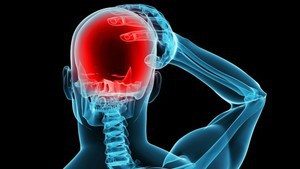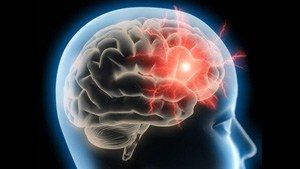



Floating and Migraines
Magnesium – A Natural Treatment
According to the National Headache Foundation, migraines affect more than 28 million people here in the US. This is a very serious concern and all of the healing modalities need to collaborate with the single pointed intention of freeing these suffers from this pain.
Migraine sufferers typically experience pain on one side of the head, accompanied by nausea and sensitivity to both light and sound. Migraines can occur at any time, but morning time is typical and can last from hours to days.
There are two types of migraines; classic and common. Classic migraines are characterized by an aura, light spots that occur just before the onset of the headache. A common migraine is one that occurs without the aura.
During a migraine, blood vessels in the head go through a cycle of constriction and dilation. The nerve pathways in the brain change and the blood vessels become inflamed.
Common “triggers” of migraine headaches include:
- Food allergies and sensitivities, the most common being gluten
- Food additives like MSG and nitrates
- Medications
- Stress
- Poor sleeping habits
- Hormone changes
The best treatment for migraine headaches is one of prevention
Migraine prevention may include changes in diet, implementing healthy stress management techniques, which in turn can help in getting adequate sleep, regulating hormones, and proper supplementation, specifically magnesium.
More than 50% of migraine sufferers have low levels of magnesium!!
Stress depletes our magnesium
Most people, when exposed to daily stress become irritable, easily fatigued, and lose concentration. Your blood pressure may increase as the level of adrenaline (a stress hormone) increases in the blood
Under conditions of mental or physical stress, magnesium is released from your blood cells and goes into the blood plasma. From there, it’s excreted into the urine.Chronic stress depletes your body of magnesium, leading to magnesium deficiency symptoms. The greater your level of stress, the greater the loss of magnesium.The lower your initial magnesium level is, the more reactive to stress you become, and the higher you’re level of adrenaline in stressful situations. Higher adrenaline causes greater loss of magnesium from cells, creating a vicious cycle
Epsom Salt’s benefits are proven
Numerous studies have demonstrated the profound and wide-ranging benefits of Epsom Salt. Soaking in an Epsom Salt bath is a very effective means of absorbing magnesium into our body.
Dissolved in our Pods, Epsom Salt is absorbed through the skin to replenish the body’s levels of magnesium.
The 2 key ingredients of Epsom salts are Magnesium and Sulfur.
Magnesium:
- Eases stress and improves sleep and concentration
- Reduces inflammation to relieve pain and muscle cramps
- Improves oxygen use
- Helps muscles and nerves function properly
- Regulates activity of 325+ enzymes
- Helps prevent artery hardening and blood clots
- Makes insulin more effective
While increasing your magnesium levels, Epsom Salt also delivers sulfates, which are extremely difficult to get through food but which readily absorb through the skin. Sulfates serve a wide variety of functions in the body, playing a vital role in the formation of brain tissue, joint proteins and the mucin proteins that line the walls of the digestive tract. Sulfates also stimulate the pancreas to generate digestive enzymes and are believed to help detoxify the body’s residue of medicines and environmental contaminants.
Sulfates:
- Help form joint proteins, brain tissue and mucin proteins
- Flush toxins
- Help prevent or ease migraine headaches
- Improve absorption of nutrients
- Raising the body’s level of serotonin, a mood-elevating chemical within the brain that creates a feeling of well-being and relaxation.
- Offsetting excess levels of adrenaline generated by pressure and stress; magnesium ions relax and reduce irritability by lowering the effects of adrenaline.
- Helping to regulate the electrical functions that spark through miles of nerves.
- Lowering blood pressure.
Magnesium also increases energy and stamina by encouraging the production of ATP (adenosine triphosphate), the energy packets made in the cells. Experts recommend soaking with Epsom Salt at least three times a week to look better, feel better and have more energy.
Better health through soaking
Magnesium can be ingested as a nutritional supplement, but studies show that a wide variety of factors – the presence of specific foods or drugs, certain medical conditions, even the individual chemistry of a person’s stomach acid – can interfere with their effectiveness. But all of the subjects in a recent study experienced increased magnesium levels from soaking in a bath enriched with magnesium sulphate crystals, commonly known as Epsom Salt.
Researchers and physicians report that raising your magnesium levels may:
- Improve heart and circulatory health, reducing irregular heartbeats, preventing hardening of the arteries, reducing blood clots and lowering blood pressure.
- Improve the body’s ability to use insulin, reducing the incidence or severity of diabetes.
- Flush toxins and heavy metals from the cells, easing muscle pain and helping the body to eliminate harmful substances.
- Improve nerve function by regulating electrolytes. Also, calcium is the main conductor for electrical current in the body, and magnesium is necessary to maintain proper calcium levels in the blood.
- Relieve stress. Excess adrenaline and stress are believed to drain magnesium, a natural stress reliever, from the body. Magnesium is necessary for the body to bind adequate amounts of serotonin, a mood-elevating chemical within the brain that creates a feeling of well-being and relaxation.
Magnesium is involved in over 300 enzymatic reactions in the body.
It is a necessary mineral for the transmission of nerve impulses, temperature regulation, detoxification and energy production. Besides migraines, some other commons signs of low magnesium status include, muscle spasms, restless legs, fatigue, anxiety, insomnia, constipation, menstrual cramps, arrhythmias and palpitations.
The neurotransmitter serotonin regulates pain messages in the brain via the trigeminal pathway. There is evidence linking changes in serotonin levels and receptor activity, to the occurrence of migraine headaches. Magnesium concentration has a positive effect on serotonin receptors as well as a variety of other migraine related receptors and neurotransmitters.
The role of magnesium therapy has been studied extensively as natural preventative treatment for migraine sufferers. Two double blind trials found that oral magnesium reduces the incidence of migraine headaches. In one study, a 20-day treatment of oral magnesium normalized 90% of the patients.
Add this to the Anti-gravity benefits derived from floating and we have a good plan to help Migraine suffers live more comfortable lives.

